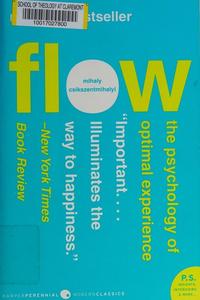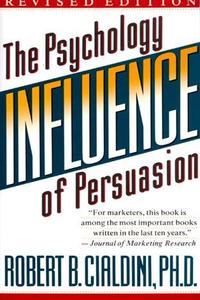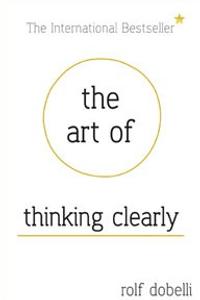
The Revolt of the Public by Martin Gurri: Summary & Notes
by Martin Gurri
Related reading: James Clear's Atomic Habits, Flow, Influence
In One Sentence
The digital age has empowered ordinary people to challenge elite institutions—but this revolt expresses itself through negation, not coherent alternatives.
Key Takeaways
- Digital age broke elite monopoly on information
- The public can now mobilize against institutions
- Negation is easier than construction
- Trust in institutions has collapsed
- Elites are slow to adapt
- No new legitimating structures have emerged
Summary
The best book I've read on understanding the effect modern communications and media are having on government and wider institutions of authority.
The book offers a thorough analysis of the last decade or so of major political movements, how they have shaped modern government, and what we might expect (and can do) in the future.
Who Should Read This Book
- Anyone trying to understand polarization
- Media observers
- Those interested in technology and society
FAQ
What is the revolt of the public?
The digital revolution gave ordinary people access to information once monopolized by elites, enabling mass mobilization against institutions—defined by what it's against, not what it's for.
📖 Chapter-by-Chapter Breakdown
Click to expand the full detailed notes for every chapter →
📖 Chapter-by-Chapter Breakdown
Click to expand the full detailed notes for every chapter →
Key Points
- We live in a new age, one of unprecedented connection and information. As we get information from more and more sources, it becomes harder to discern the truth of a story, or to believe the truth coming from institutions of authority.
- This explosion of information has resulted in a loss of authority for institutions that once held it, government being a prime example.
- Authority flows from legitimacy, which is derived from monopoly. Authority explains reality in the context of a shared story among a group.
- The public has always been around. It has just moved from reactive to hyper-active and ultra-intrusive.
- The public and the crowd are not quite the same. The public shares a point of reference, a voice, and an opinion. A crowd is physical. The public mediates the transformation of the crowd into a symbolic force.
- The trend of the past decade has been a move toward negation. Instead of offering realistic alternatives and working towards them, we are satisfied with standing outside and criticizing the system we have. This further erodes our trust in institutions and authority.
- We have moved from criticizing those involved in institutions to criticizing the institutions and systems themselves.
- Capitalism is one area that seems to be able to regenerate itself. Firms fail and others take their place. It grows continuously through random events and shocks, rather than being destroyed by them.
- The difference between capitalism and government is that failing companies go out of business, while government accumulates failure, making it more fragile.
- Lack of certainty isn't ignorance, but rather it causes us to doubt everything we thought we knew, undermining our belief in authority and institutions.
- Government can only be said to fail relative to its own claims or the expectations of the public.
- The failure of government in recent years has been a result of increasing claims, often to get elected, and then disappointing results. It's not surprising; in modern democratic governments, they promise happiness, something near impossible to deliver.
- Public trust in government during JFK's time was 70-80 percent. By Obama's second term, it was down to 19 percent.
- Despite the swelling size of government, things like unemployment rate have barely changed. The reality is that many of the things government tries to affect are determined by complex forces which aren't understood or able to be controlled.
- Negation, coming from every side, all the time, has driven us towards the belief that destruction—anything other than the status quo—is a better alternative.
- The personal sphere is the circle of everyday life: friends, family, career, faith. Information stays one or two links away.
- In the modern world, the public has options, and has insisted that their tastes and interests be imposed on the larger system. The most effective alternative to industrialized democracy is the personal sphere. Personal success can be emulated. Personal failure happens on a small scale.
- This has several implications. We should redirect our expectations from government to our personal sphere. We can choose to do things to improve our own lives and the lives of those around us.
- Governments have a role to play too. We should reward those who speak honestly about trade-offs and hard decisions and keep expectations low.
- Governments should seek to simplify, and to be more transparent. Publishing simpler proposed bills with information about the data behind the decision and the compromises made, and why. This should help lower expectations from the public too.
- We can also seek to push power to local governments. This helps with our focus on the personal sphere, and gives us someone closer to us to hold accountable. The models of Switzerland and Estonia can give us some idea of what might be possible on this front.
- We should also seek to elect true "elites"—those who earn their authority through their actions and their integrity. They should be people we wish to resemble.
Quotes
- "Today we drown in data, yet thirst for meaning."
- "Lack of certainty isn’t ignorance: it’s a splinter of doubt festering in all we know, a radical disillusionment with the institutions of settled truth."
- "Uncertainty, in this struggle, reflects a negation of the standing structures of knowledge. Impermanence signifies the demolition of the current structures of power and money. A large empty space, a conceptual hole, a nothingness, is in the process of creation, where once a complex society wrestled institutionally with its own contradictions and fallacies."
- "If high modernism in power was an engine of perfection, late modernism has become a happiness machine. It feels bound to intervene anywhere it has identified groups that were somehow victimized, disabled, troubled, below average, offended, uncomfortable—actually or potentially unhappy. Its actions are the political equivalent of handing out a chocolate chip cookie: government today desperately wishes to be seen doing something, anything, to help, and be recognized for its good intentions."
- "Failure, I repeat, is a function of government claims and public expectations. High modernist governments claimed that they could do anything to achieve perfection. Rhetorically, their present-day heirs have taken on this burden too, to which they have added the claim that they can intervene anywhere to promote happiness. The history of these claims in action can best be described as a humbling collision with reality. Failure has been the rule, and the impact of failure has been to bleed legitimacy away from the democratic process."
- "If Ormerod is right, most democratic contests today are fought over phantom issues, and democratic politicians, to get elected, must promise to deliver impossibilities."
- "We still quarrel in terms of left and right, conservative and liberal, even while the old landscape has been swept clean and the relevance of these venerable labels has become uncertain."
- "My concern from the start has been with representative democracy. I worry that it, too, may be passing away. I wonder whether Farrell was right to assume that democratic politics, as practiced today, are also a body without a soul."
- "By that literary turn of phrase I mean something very specific. I mean an institution that clings to life and still wields power, but has been bled dry of legitimacy. It has no true authority or prestige in the eyes of the public, and it survives by a precarious combination of inertia and the public’s unwillingness to produce an alternative. It exists by default."
- "The authority of institutions that surround and support modern democratic government—journalism, academia, science—has been systematically challenged, with disastrous consequences for mediated domains like the news business and the politics of climate change."
- "Drill down into the networks that have enabled the public to confound authority, and you soon arrive at what I would call the personal sphere. This is the circle of everyday life, experienced directly, in all its local specificity. Here the choices meaningful to an individual get generated: spouse, children, friends, career, faith. Government and high politics fill in the background. To imagine they can ordain or legislate happiness at this level is a modern illusion."
- "The public has options: that is the single defining feature of the Fifth Wave. The public has options, and everywhere has cashed them in to pull the elites down and lower the height of the political pyramid. Ordinary people have turned the tables on the standardizing bureaucracies, and now insist that their tastes and interests be imposed on the larger system. They demand personalized service. They crave latte without milk—not just from Starbucks, but from their government."
- "The most effective alternative to the steep pyramid of industrialized democracy isn’t direct democracy on the Athenian model or cyber-democracy in the style of Wael Ghonim’s Facebook page. It’s the personal sphere: the place where information and decisions move along the shortest causal links."
- Jonathan Haidt, one of the truly original minds in contemporary American psychology, uses a metaphor of the "elephant" for our powerful passions and instincts, and of a helpless "rider" for the rationalizing intellect. He then summarizes the latest research on persuasion:
- "When does the elephant listen to reason? The main way that we change our minds on moral issues is by interacting with other people. We are terrible at seeking evidence that challenges our own beliefs, but other people do us this favor, just as we are good at finding errors in other people’s beliefs. When discussions are hostile, the odds of change are slight. The elephant leans away from the opponent, and the rider works frantically to rebut the opponent’s charges.
- But if there is affection, admiration, or a desire to please the other person, then the elephant leans toward that person, and the rider tries to find the truth in the other person’s arguments..."
- "In the end, everything will hinge on the public: on us. If Ortega was correct, then we have lost the right to rant about our rulers. Instead, we must go about the job of selecting their successors. We can lavish our attention and our energies strictly on politicians who seem unwilling to lie or simplify or distort to advantage. We can identify and raise up those who refuse to climb above us. That’s one fork in the path ahead: another leads to nihilism. Either way, the choice is ours."




